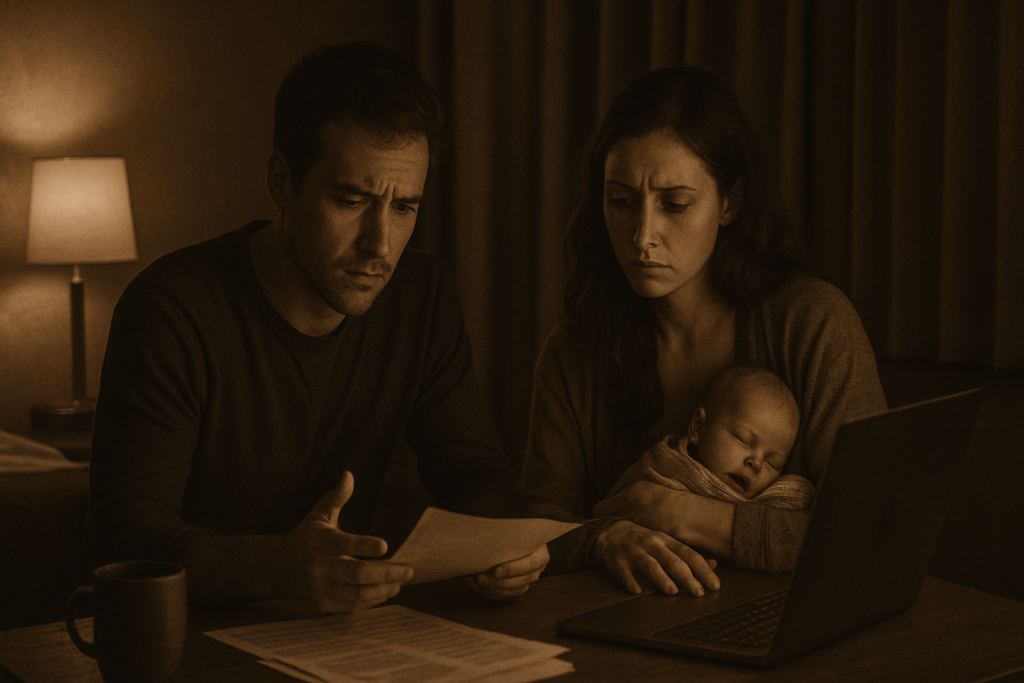Photo by Alexander Dummer on Unsplash
Bad credit can feel like a heavy weight dragging you down, especially when you’re managing family expenses. From medical bills to school fees, even small financial choices can create anxiety when your credit score is working against you. When emergencies strike, anxiety can quickly morph into paralyzing stress. But having poor credit doesn’t mean you can’t take control. With a structured plan and clear priorities, you can still manage your household budget effectively while laying the groundwork to rebuild your financial credibility.
Reevaluate Household Priorities
The first step to managing money under credit strain is redefining what matters most. Essentials like housing, food, utilities, and healthcare should come before any discretionary spending. This isn’t about cutting down on enjoying life—it’s about protecting the financial core of your household. Categorize your monthly expenses into “needs,” “must-pay debts,” “cancel” and “postpone if possible.” By clarifying non-negotiables, you can stretch limited resources without skipping critical payments that impact your daily life.
Build a Transparent Family Budget
A detailed family budget becomes more than just numbers when credit is tight—it’s your defense strategy. Involve all adult household members in the conversation to avoid confusion and conflict. Start by calculating net income, then list every expense, no matter how minor. From groceries to kids’ activities, seeing it all laid out helps you identify where to adjust. Consider using budgeting apps or spreadsheets to track everything weekly. If children are old enough, involve them too—this builds financial awareness early.
Communicate With Creditors and Service Providers
When facing a late payment or tight month, proactive communication can soften the blow. Many utility companies, internet providers, and even lenders offer hardship plans or short-term deferments. Rather than letting bills pile up or accounts close, contact them directly and explain your situation.
This approach often leads to temporary relief or more manageable payment terms. In some cases, renegotiating installment loans or requesting lower interest rates is possible. Avoid silence—it worsens both your credit score and your peace of mind.
Avoid High-Risk Credit Fixes
Desperation can push people toward risky solutions like payday loans or unregulated lenders. These options often make your situation worse. A loan with ultra-high interest may provide temporary breathing room but could derail your budget in the long run.
If you need short-term help, consider community resources, local nonprofits, or secured credit builder products that don’t pose such a high repayment burden. Stick to financial tools that have transparency, regulatory oversight, and realistic repayment expectations.
Focus on One Debt at a Time
Debt with bad credit feels overwhelming because you see everything at once. Instead, use strategies like the debt snowball (tackling the smallest balances first) or the debt avalanche (targeting the highest interest rate debts first). Both methods work, so choose the one that keeps you motivated. Prioritize accounts with late fees or those reported to credit bureaus. Knocking out even one account can reduce financial pressure and gradually boost your credit health. Consistency matters more than the amount when it comes to monthly payments.
Find Credit-Safe Ways to Cover Emergencies
Emergencies don’t wait for financial stability. When credit access is limited, it helps to build a micro-emergency fund—even a small buffer can reduce the need for urgent borrowing. Explore local support networks, flexible side gigs, or small grants that can bridge temporary gaps.
Still, some situations may require borrowing. In these cases, applying for online bad credit loans from reputable lenders can be a practical step if done with caution. Look for lenders with clear terms, no hidden fees, and responsible approval criteria. This allows you to handle unexpected expenses without risking deeper debt or falling prey to high-interest traps. Always compare offers and avoid urgency-driven decisions.
Improve Credit Without Borrowing More
Handling bad credit doesn’t mean you need more debt to fix it. In fact, low-use secured credit cards, store accounts with small purchases, or becoming an authorized user on a relative’s card can improve your credit score without major risk. Always pay on time, even if it’s just the minimum. Setting up autopay for fixed bills like insurance or mobile plans also helps reduce the chance of late payments. Every on-time bill adds positive credit behavior, even if the impact takes months to show.
Talk to a Professional If You’re Stuck
There’s no shame in needing help. A certified credit counselor can assist in reviewing your income, expenses, and debt obligations. Many nonprofit credit counseling agencies offer free consultations. They may help you set up a debt management plan (DMP) that consolidates your monthly payments into one lower installment. Be cautious of any service that charges upfront fees or promises to erase your credit issues quickly—reliable support will always start with education and options, not pressure.
Establish a Family Financial Routine
Stability isn’t just about the numbers—it’s about the habits behind them. Set a weekly check-in with your partner or spouse to review your budget and upcoming expenses. This doesn’t have to be stressful or formal—just a time to stay in sync. Celebrate progress, however small. Make sure everyone understands what’s off-limits until the budget improves. Use visual reminders like savings charts on the fridge or goal trackers in your budgeting app. Keeping finances visible and structured gives your family a sense of control.
What This Means for You
Bad credit doesn’t stop you from being a responsible provider or making sound financial decisions. It does require intentionality and discipline, especially when others rely on your stability. Managing family finances under pressure calls for honesty, planning, and resourcefulness. It might not feel like progress every day—but each decision made with care lays the groundwork for recovery. Small wins today help build long-term financial confidence, for you and your family.



